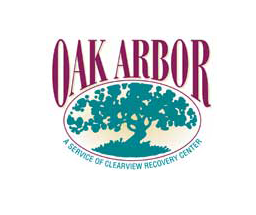What You Need to Know About Pregnancy and Addiction
- By Admin
- •
- 08 Apr, 2021
- •

Did you recently find out you're pregnant? If you have an untreated alcohol or drug use disorder, take a look at what you need to know about substance abuse, pregnancy, and getting help.
How Can Substance Use and Abuse Impact Your Baby?
Your baby gets more than just food and oxygen from you. What pregnant mothers put into their bodies passes (in most cases) through their blood and into the baby. While not every substance crosses the placenta or affects the fetus, alcohol and most recreational and prescription drugs do. This means your baby uses the substances you use.
The known effects of alcohol and drugs on unborn babies include:
- Neonatal abstinence syndrome. Also known as NAS, neonatal abstinence syndrome happens when a newborn baby goes through withdrawal. This happens immediately after birth and is related to maternal opioid use. New research shows alcohol, barbiturates, and benzodiazepines may also have similar effects.
- Stillbirth. According to the National Institute on Drug Abuse, stimulant, marijuana, and prescription pain reliever use during pregnancy can result in a 2.2 times greater stillbirth risk.
- Fetal alcohol spectrum disorders. FASD is a general term for Fetal Alcohol Syndrome (FAS) and other similar alcohol-related disorders and birth defects. FASD can result in lifelong effects for the child, including emotional issues, poor motor coordination, poor social skills, and trouble with schoolwork.
Along with these common issues, other disorders, delays, and health-related issues can result from substance abuse during pregnancy. Talk to your doctor or a licensed counselor about how your specific substance abuse issue could impact your pregnancy.
What Can You Do About Substance Abuse During Pregnancy?
Now that you know more about the risks of substance use and abuse during pregnancy, take the next step and get help. You don't have to go through this major change alone. Pregnancy is a challenging time - and so is addiction recovery. Add the two together and it's natural to struggle with the emotional, health, and other aspects of the two.
If you have a substance abuse problem or suspect you do:
- Get professional help. Trained counselors and therapists are experts in this area. Find a substance abuse counselor who understands the challenges pregnant women may face and can help you to handle the situation in a way that works for your individual needs.
- Talk to your doctor. A doctor or OB-GYN can help you to understand and overcome the physical aspects of recovery. Withdrawal and other medical issues require extra professional help - especially during pregnancy.
- Find a caring community. While professional help is crucial right now, therapists and doctors aren't the only people you can lean on. Find a caring community to support you during your pregnancy and through your recovery. This may include a support group or group therapy.
Your recovery journey won't end at your baby's birth. Recovery is a life-long process. This means you may need to continue therapy, group counseling sessions, or utilize another program after you become a mom.
Where Can You Find Addiction Help During Pregnancy?
You're pregnant and have a substance abuse disorder. You now know you need help. But you aren't sure where to go. Do you search the Internet for therapists, ask a friend, or find a professional in another way? To connect with the help you need right now:
- Use a helpline. Helplines exist to connect people in need with the right type of help. The U.S. Substance Abuse and Mental health Services Administration (SAMHSA) has a national helpline for anyone in need.
- Ask your doctor. Do you already have a general doctor or OB? Ask the physician for a referral.
- Treatment centers. Contact treatment centers in your area directly. These include publicly and privately funded programs.
If you have a few different treatment centers/addiction counseling options to choose from, explain your needs and discuss how pregnancy will impact the program's results.
Do you need addiction help? Contact Oak Arbor for more information.





